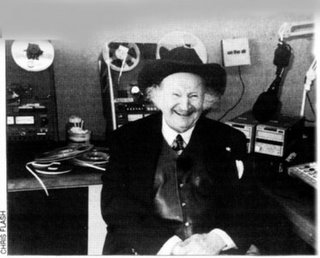Ever wonder where the 8-hour work day (which some of us take for granted) came from? Health benefits? Safety standards on the job? Well, in a nutshell, a lot of it came from commies, anarchists, and miscellaneous radicals, who were incredibly committed to making their world a more equitable and humane place--largely through union organizing. And who were those people? Well, some of them might be lurking in your family tree. Others we know about from history books, and the scant mention of them in our classrooms. Many famous people were committed people, even if its never mentioned in the mainstream stories--such as Helen Keller.
Someone recently brought to my attention a great interview with the recently deceased Al Lewis, better known to many of us as Grandpa
Here are a few choice excerpts from the interview with a NYC underground paper called The Shadow. You can read the entire interview here.
SHADOW: What was it like being a labor organizer in the 1930's?
LEWIS: Depends where you were. In the South? You faced death at any moment.
SHADOW: The Ku Klux Klan?...
LEWIS: You'd get shot at. Not the Ku Klux Klan -- the poor people there who had no jobs. They were hired by the boss, they gave them a gun -- "You see this son of a bitch? Blow his head off."
SHADOW: What industry was this?
LEWIS: Food, Agricultural, Tobacco Workers
SHADOW: What about the National Maritime
LEWIS: You were more on home ground on the port than organizing in the south, even to this day. Even John L. Lewis, who organized the United Mine Workers. He didn't get very many Southern mine workers. American history -- people don't know it. You know who his organizers were? Communists from the North. He writes about it. Went down south to Harlan County Kentucky, Hazard
(Marjorie says: For a great movie telling the story of a "red" labor organizer in just such a situation, see Matewan by John Sayles)
SHADOW: So what kept you going?
LEWIS: Who knows? I don't know. Maybe stupidity! (Laughs). He (John L. Lewis) was smart enough. He knew that the most dedicated ones -- he wasn't interested in their politics, whether they supported
SHADOW: So what motivated you, what politicized your life? Some people say they want to make a lot of money, other people say "I'm gonna change the world," other people say "I don't give a shit about anybody"
LEWIS: Those are full of shit statements. That's shit. What motivated me? My mother. My mother was an immigrant woman, a peasant woman, struggled all her life, worked in the garment center. Understood what the struggle was about. My mother. Couldn't read or write, but she had more sense than many a graduate from Harvard.
SHADOW: Was she also an organizer?
LEWIS: No, my mother was a worker, a floor lady, a shop lady in the garment center here in
SHADOW: In the demonstrations back in those days were there ever problems with the police? Did they try to attack people?
LEWIS: Did you just come to this country? (Laughs) What are you talking about? The police are here to protect property. They're not here to protect the public! So, what the fuck are you asking me? Of course! Name me a period when the police...(laughs)
SHADOW: So these demonstrations for Tom Mooney, and labor demonstrations...
LEWIS: Warren K. Billings, organizing the CIO, and
District 65, and the UE, and NMU. All that was going on and the police were there to see that you didn't do it. And if they could get away with it, they'd beat the shit out of you.
SHADOW: And people would resist?
LEWIS: Well obviously. And unions were created. We used to have a saying: "If you don't get the asses of the masses out in the street, forget it." And you get enough of them out there, the ruling class gets scared. That's the only thing they're afraid of, is numbers. Numbers! See, one thing you have to understand. There's very few people understand, especially people who deal in outlaw newspapers and magazines. The ruling class is smarter than you, and they're more creative. And if you forget that lesson, you go down the drain. Because if they weren't, they wouldn't be around as long as they have been and as strong as they have been. It's not an accident. Not an accident. Never underestimate your opponent. They'll tell you that if you're a fighter. Never underestimate. You can poke fun at 'em, you can do satire, but they work 24 hours a day. It's like Lord Acton said: "Power corrupts; absolute power corrupts absolutely." I say that power works 24 hours to remain in power. Throughout history. Go back to kings, feudal times. The same thing. While you and I, here we're bullshitting, and then we go out: "
SHADOW: So what do you think people can do in response to that power?
LEWIS: First of all, (laughs) you have to agree that these people shouldn't have the power. Go on



|